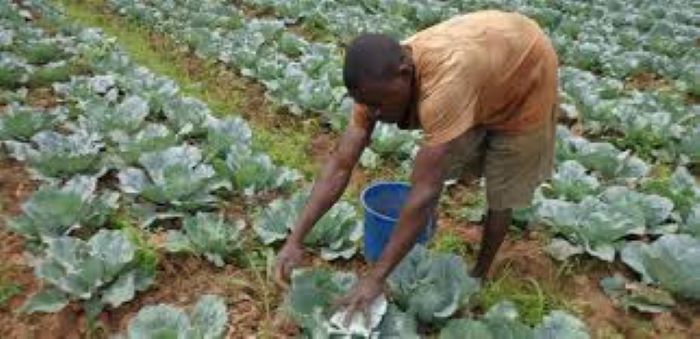The International Fund for Agricultural Development (IFAD) today announced support for a new programme in the Democratic Republic of the Congo (DRC) to reduce poverty, increase productivity and incomes, improve food and nutrition security, and build the resilience of more than 410,000 small-scale farmers households.
DRC has the second-largest food crisis in the world, with 15.6 million people food insecure and 3.4 million children acutely malnourished. With small-scale producers grappling with climate change and COVID-19, food insecurity is expected to increase further in 2020. This threatens the livelihoods of millions of vulnerable Congolese.
To help the country address these issues, the financing agreement for the Inclusive and Resilient Rural Development Programme (PADRIR) was signed by correspondence by Sele Yalaghuli, Minister of Finance of the Democratic Republic of the Congo and Gilbert F. Houngbo, President of IFAD.
This US$130.4 million programme will promote food crops such as cassava, rice and maize for climate-resilient value chain development, and groundnut, cowpea and soy to strengthen food and nutritional security. To diversify the income of small-scale farmers, PADRIR will encourage market gardening, fish farming, poultry breeding, beekeeping and livestock raising.
“Today, the country faces many challenges – Covid-19, Ebola and conflict – and these are impacting the livelihoods of vulnerable small-scale farmers,” said Valantine Achancho, IFAD Country Director for DRC. “IFAD is committed to working with the government to ensure that rural areas are not left behind, and PADRIR is an innovative and inclusive programme that will tackle the issue of rural poverty holistically, with particular attention to people with disabilities, and the Pygmy people. It will improve access to basic economic and social infrastructure in its areas of intervention”.
The programme will also promote the economic inclusion of small-scale farmers and value addition to agricultural products through processing. Rural infrastructure will be put in place to support market-oriented production, and to enable efficient delivery of surplus production from small farms to markets, allowing farmers to sell more and improve their livelihoods.
PADRIR will build the capacity of small-scale farmers and their organizations – not only in production, but also in storing and processing perishable products. It will promote vocational training for young people and help create jobs for them.
The programme funding includes an $26.6 million loan and $9.8 million grant from IFAD. In addition, the Government of DRC is providing $14.7 million, with a further $3.3 million contributed by beneficiaries themselves and international co-financiers and development partners have committed a total of US$75.9 million.
PADRIR will be implemented in the four provinces of Central Kasaï, Eastern Kasaï, Lomami and Maniema. It will rehabilitate and construct environmentally friendly infrastructure – 180 water points including boreholes, drinking water supply systems and 14 micro hydroelectric plants and solar panel kits. In addition, 1,530 kilometres of roads and bridges will be rehabilitated; 44 warehouses, 68 healthcare centres and rural hospitals, 35 nutrition centres and 70 primary and secondary schools will be rehabilitated or constructed. The project will aim to have 60 per cent women among its beneficiaries.
Since 1980, IFAD has invested more than $213.7 million in nine rural development programmes and projects in the Democratic Republic of the Congo, worth a total of almost $421.2 million. These interventions have directly benefited almost 561,200 rural households.








